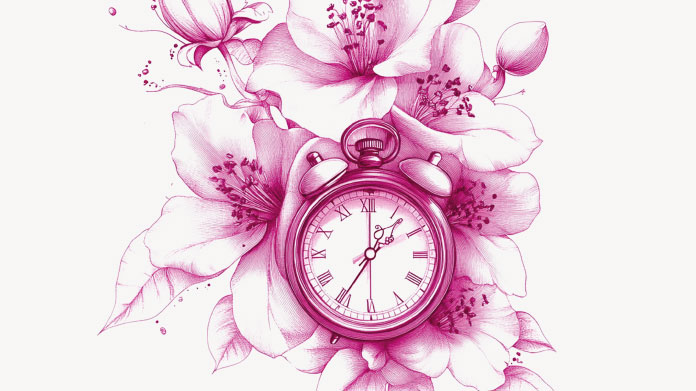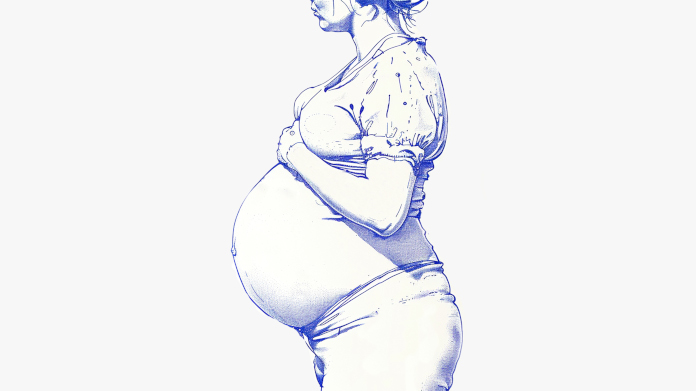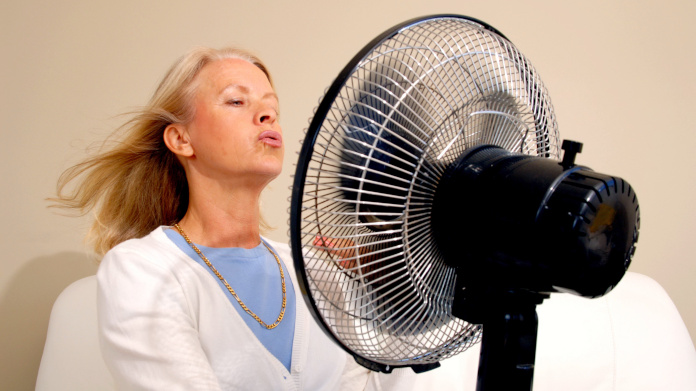Menopause: our 12 tips for reducing the symptoms
The menopause is a sensitive time in a woman’s life … Follow our advice to navigate this key period with complete peace of mind.

The menopause is a sensitive time in a woman’s life. Declining production of the hormones estrogen and progesterone can turn daily life upside down, with unpleasant symptoms such as hot flushes, weight gain, bone weakness, loss of libido, sleep problems … But by taking a few simple measures, it’s possible to transition through this period with ease.
Tackle the decline in hormones with isoflavones
Powerful antioxidant flavonoids, isoflavones are naturally present in many legumes and pulses. They have the particular characteristic of exerting similar effects to those of estrogen and are therefore able to reduce the above-mentioned symptoms (1). These phyto-estrogens are found in soya and red clover in particular, as well as in dietary supplements.
Try topical application of progesterone
Applied in the form of a cream, this acts as a mild substitute for the progesterone the body is no longer producing (2) and can reduce hot flushes.
Black cohosh can also help with hot flushes
Black cohosh is part of the buttercup family, the roots of which contain glucosides, derivatives of glucose commonly found in plants. Black cohosh glucosides help to reduce the hot flushes, excessive perspiration and moderate anxiety which can accompany the menopause (3).
Take calcium and vitamin D to maintain bone health
To minimise the risk of osteoporosis, the body needs an adequate level of calcium (4). A balanced diet including dairy products, almonds or calcium-rich mineral water should provide a reasonable amount, but in the case of any shortfall, calcium supplementation is a good idea. Combining it with an adequate intake of vitamin D will boost its effects. However, take care not to exceed the doses recommended by your doctor.
Improve the quality of your sleep with valerian and melatonin
Valerian and melatonin are recognized for providing relief from sleep problems, which can be a particular issue for menopausal women (5,6). They’re also effective against hot flushes.
Take advantage of the adaptogen properties of ginseng
Since libido is linked to the presence of estrogen, the decline in this hormone during the menopause often results in a decreased sex drive, sometimes accompanied by vaginal dryness. Menopause-induced stress and anxiety can aggravate this further. Ginseng is an adaptogen plant - it enables the body to withstand all forms of stress, and can thus help alleviate sexual problems and revive a flagging libido (7).
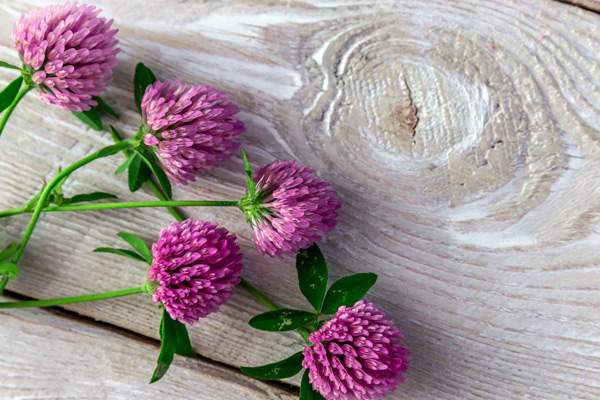
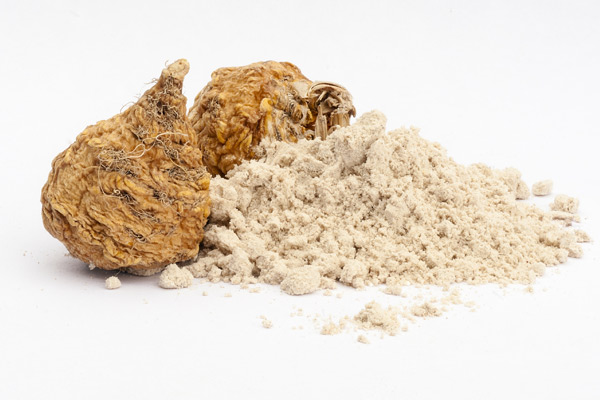
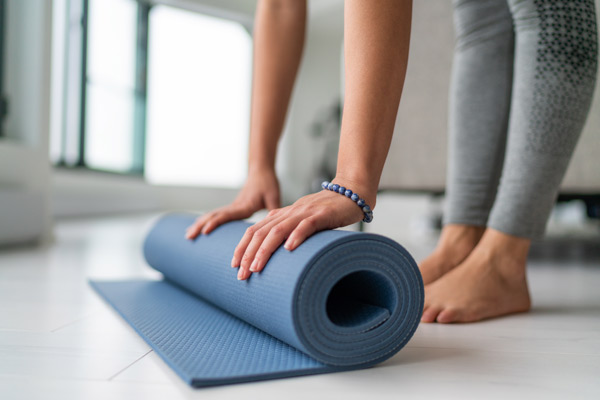
Maintain good mental health with maca
Maca is a plant from the cabbage family which grows on the high plateaus of the Andes. It is used to reduce symptoms of anxiety and depression which can occur with the menopause (8). Also good to know - maca is effective at preventing loss of libido.
Make sure you eat a balanced diet
Eating a balanced diet helps prevent the weight gain associated with falling hormone production as well as excessive loss of bone mass. Ensure you eat plenty of fibre, protein and a variety of nutrients.
Stay active
Taking regular exercise also helps you to maintain a healthy weight and prevent osteoporosis (9). Exercise actually activates bone cells and prevents loss of bone density. It also has benefits for mood and sleep.
Learn relaxation techniques
Relaxation has been shown to have a significant effect on symptoms of the menopause, particularly hot flushes and anxiety (10). And of course you sleep better when you’re relaxed! It’s a good idea to try a few different techniques to find the one that’s right for you: yoga, meditation, sophrology …
Try alternative approaches
Acupuncture, a branch of Chinese medicine, has demonstrated benefits in reducing symptoms related to hormonal changes (11). If you’re sensitive to alternative medicines, this may be a good option for you.
Discuss your symptoms with others
To get through what can be a challenging period, it’s important to listen to your body and accept the changes taking place. Discuss them with those around you as well as with health professionals to help you deal with this new phase of life in complete peace of mind.
References
- Perna S, Peroni G, Miccono A, Riva A, Morazzoni P, Allegrini P, Preda S, Baldiraghi V, Guido D, Rondanelli M. : Multidimensional Effects of Soy Isoflavone by Food or Supplements in Menopause Women: a Systematic Review and Bibliometric Analysis. Prod Commun. 2016, Vol. 11(11), pp 1733-1740.
- Leonetti HB, Longo S, Anasti JN : Transdermal progesterone cream for vasomotor symptoms and postmenopausal bone loss. Obstetrics & Gynecology. 1999, Vol. 94(2), pp 225-228.
- Bai W, Henneicke-von Zepelin HH, et al. Efficacy and tolerability of a medicinal product containing an isopropanolic black cohosh extract in Chinese women with menopausal symptoms: a randomized, double blind, parallel-controlled study versus tibolone. Maturitas. 2007, Vol. 58(1), pp 31-41.
- Anna Surbone, Nicolas Vulliemoz, Elena Gonzalez-Rodriguez, Jean-Paul Chatelain, Olivier Lamy : Ostéoporose chez les femmes ménopausées entre 40 et 65 ans : algorithme pour le gynécologue. Rev Med Suisse. 2016, Vol. 12, pp 1811-1815.
- Parvaneh Mirabia, and Faraz Mojabb : The Effects of Valerian Root on Hot Flashes in Menopausal Women. Iran J Pharm Res. 2013 Winter; 12(1): 217–222.
- Chojnacki C, Kaczka A, Gasiorowska A, Fichna J, Chojnacki J, Brzozowski T. : The effect of long-term melatonin supplementation on psychosomatic disorders in postmenopausal women. J Physiol Pharmacol. 2018, Vol. 69(2).
- Oh KJ, Chae MJ, Lee HS, et al., Effects of Korean red ginseng on sexual arousal in menopausal women: placebo-controlled, double-blind crossover clinical study. J Sex Med. 2010, Vol. 7(4), pp 1469-77.
- Brooks NA, Wilcox G, Walker KZ, Ashton JF, Cox MB, Stojanovska L. : Beneficial effects of Lepidium meyenii (Maca) on psychological symptoms and measures of sexual dysfunction in postmenopausal women are not related to estrogen or androgen content. Menopause. 2008, Vol. 15(6), pp 1157-62.
- Grindler NM, Santoro NF : Menopause and exercise. Menopause. 2015, Vol. 22(12), pp 1351-8.
- Alisa Johnson, Lynae Roberts, and Gary Elkins. Complementary and Alternative Medicine for Menopause. J Evid Based Integr Med. 2019, Vol. 24.
- Baccetti S, Da Frè M, Becorpi A, Faedda M, Guerrera A, Monechi MV, Munizzi RM, Parazzini F. Acupuncture and traditional Chinese medicine for hot flushes in menopause : a randomized trial. J Altern Complement Med. 2014, Vol. 20(7), pp 550-7.
Keywords
2 Days
repeat customer
recommended by my doctor. easy to create an account. Discounts and specials are appreciated. packaging and delivery is dependable. Capsules easy to digest. I've had some some capsules and tablets that are broken inside their bottles.
Kokee
7 Days
Order was shipped on time and packaged…Wonderful Jobs!
Order was shipped on time and packaged excellently.
DMHoge
13 Days
great products and prices
great products and prices
Marie
19 Days
Easy to navigate site
Easy to navigate site, had what I was searching for, good price. easy order-check out
James Tucker
25 Days
My skin is clearing up nicely!
Pretty good for my skin so far.
Christian
27 Days
The new packaging is excellent
The new packaging is excellent - finally! No more squashed boxes and torn envelopes.
GORAN
28 Days
Great Product
Great Product
Larry Garrett
33 Days
Quick shipping
Quick shipping; good price. No issues!
Mary McCarty
34 Days
Thr product is very good and is helping…
Thr product is very good and is helping me on my health. Then is always on time
LUGO Luz
37 Days
Buying was fine
Buying was fine. I had problems with the website not recognizing my login info, and had to call to get it fixed. Other than that, everything was good.
David S. Clark
37 Days
Your super maca and super ginseng are…phenomenal
Your super maca and super ginseng are phenomenal supplements that compliment each other when taking them together. Fantastic feeling of well-being and lots of mid day energy without the crash.
Keith Mason
40 Days
I have had amazing results with every…
I have had amazing results with every supplement I've purchased. I am extremely satisfied with this company
kirstin Torres
40 Days
Fine products
Fine products . They are on the leading edge of online supplements. The only issue -so far-is they sometime run out of subscription items.
Jason Argos
42 Days
The ordering process is very user…
The ordering process is very user friendly and the products always come in a timely manner.
CARTER Rhonda
43 Days
The price for Dr
The price for Dr. Pero's AC-11 is reasonable and in line with his views. (my former colleague). Keep it pure.
CAMPBELL Clayton


